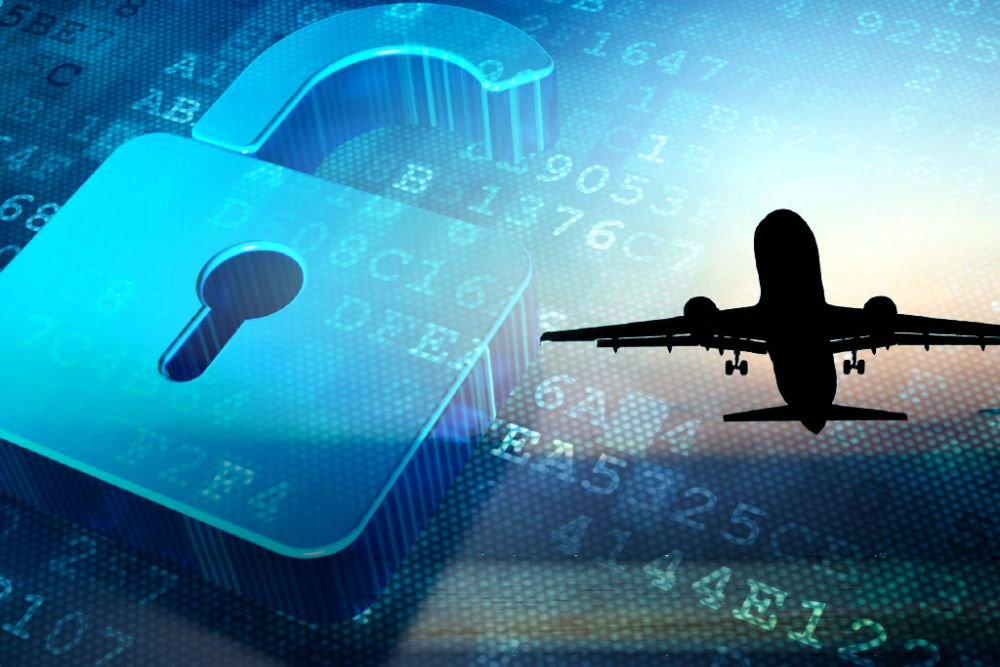Cybersecurity in Aviation: Protecting Airlines and Passengers in the Digital Era
September 2, 2025
Let’s cut to the chase — flying is more digital than ever. You book online, check in from your phone, scan your face at the gate, and stream a movie at 35,000 feet. Super convenient, right?
But here’s the thing: all that tech? It opens the door to cyber threats. And when you’re in the air, the last thing you want to worry about is your data getting stolen. Welcome to the world of cybersecurity in aviation — a topic that sounds boring but is actually really important.
Wait… Planes Can Be Hacked?
Not like in the movies, where someone hijacks a plane with a laptop from seat 21B. But yeah — airlines, airports, and even aircraft systems can be vulnerable when it comes to cybersecurity in aviation.
- Passenger data leaks (names, emails, credit card info, the whole deal) have happened.
- Ransomware attacks have hit airport networks, shutting down systems.
- Hackers have even tested airplane Wi-Fi vulnerabilities just to prove a point.
So while you're browsing
Business Class Flight tickets and dreaming about your next trip, someone else might be snooping around looking for a way in.
So… What Are Airlines Doing About It?
Thankfully, they’re not ignoring it. Airlines' authorities are finally taking cybersecurity in aviation seriously. Here's how:
1. Tightening Up Their Tech
Behind every smooth check-in and touch-free boarding gate is a ton of software. Airlines are beefing up firewalls, encryption, and monitoring tools to make sure hackers don’t sneak in through the digital back door.
2. Protecting Your Data
You give airlines a lot of personal info — name, birthdate, passport number, payment details. It’s their job to keep it safe. More carriers are now using encrypted systems and secure servers to make sure your booking doesn’t end up on the dark web.
3. Training Their Teams
Pilots, flight attendants, airport staff — they're all getting trained to spot suspicious digital activity. Because sometimes, cybersecurity failures come down to someone clicking on a sketchy email.
What You Can Do (Without Being a Paranoid Traveler)
Airlines are stepping up, but there are a few simple things you can do to stay digitally safe when you travel, ensuring cybersecurity in aviation:
- Use a VPN if you’re connecting to an airport or in-flight Wi-Fi.
- Stick to airline apps for check-ins and boarding passes.
- Don’t enter sensitive info on random public Wi-Fi.
- Keep your phone and laptop updated — those updates matter.
If you’re someone who travels for work and books a lot of Business Class Flight tickets, you’re even more of a target. Business travelers often access sensitive info on the go — don’t make it easy for hackers.
The Future: High-Tech and High-Security
With facial recognition, smart boarding gates, and AI systems becoming the norm, aviation is only going to get more digital. That’s exciting — but it also means cybersecurity in aviation needs to keep up.
Luckily, the industry knows that. Airlines are investing in better systems, tighter controls, and smarter responses to threats. It’s not perfect, but it’s moving in the right direction.
Wrapping It Up: Safe Flights Go Beyond Just Turbulence
Next time you book a flight — whether it’s a quick getaway or you're splurging on Business Class Flight tickets — remember: it's not just about the seats, the service, or the snacks. It’s about your data, too.
Need help picking airlines that take cybersecurity in aviation seriously? Want to travel smarter without overthinking it?
Contact us with our experts — we’ll help you plan your trip with peace of mind and maybe a few tech tips thrown in.
Because in today’s world, flying smart means flying secure.
Have a look at
our website to know more.
ALSO READ:
Artificial Intelligence in Aviation: Rewiring the Skies


